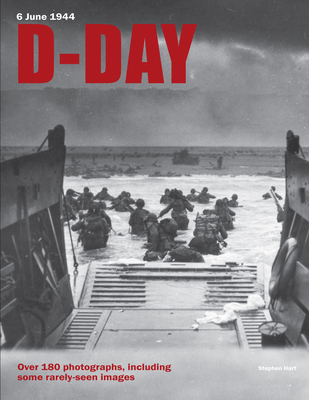
description
tographic guide to this key turning point in World War II. By May 1944, more than 2.8 million Allied troops, with 4,000 American, British, and Canadian ships, were amassed in southern England, waiting to cross the English Channel in the largest seaborne invasion of history. More than 1,200 planes stood ready to deliver specialist airborne troops behind enemy lines, to silence German ground resistance and destroy local infrastructure, and to dominate the skies of the battle theater. D-Day provides a photographic exploration of this monumental military and political event that helped bring about the end of Nazi Germany's four-year occupation of Europe. The book is divided into chapters covering the first days of the landings on the five beaches: Omaha, Utah, Gold, Juno, and Sword; separate chapters cover the airborne landings of the famous American 82nd and 101st Airborne Divisions and the British 6th Airborne, as well as the crucial help of French Resistance fighters in providing intelligence and disrupting German communications and supply lines.
member goods
No member items were found under this heading.
Return Policy
All sales are final
Shipping
No special shipping considerations available.
Shipping fees determined at checkout.







